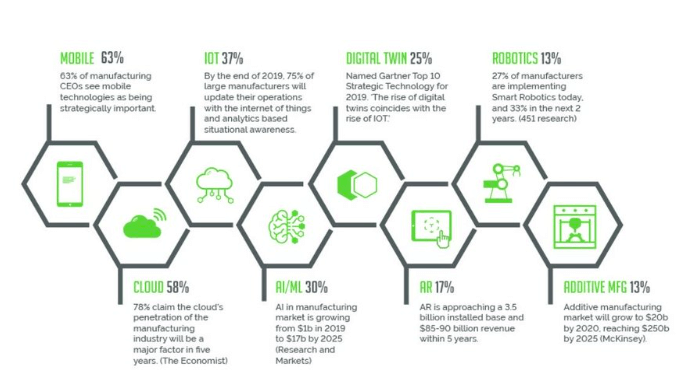
Why Small Businesses Can’t Afford to Ignore Digital
In today’s hyper-connected world, the phrase “going digital” is more than just a buzzword—it’s a lifeline for small businesses navigating the complex landscape of the modern economy. As technology continues to evolve at breakneck speed, the gap between businesses that embrace digital transformation and those that resist it widens. For small businesses, the stakes are especially high. Going digital is no longer optional; it’s essential for survival, growth, and competitiveness. In this article, we will explore why small businesses must go digital, the benefits of doing so, and the challenges they may face along the way.
The Digital Imperative: Why Go Digital?
The digital age has fundamentally altered the way businesses operate, communicate, and compete. For small businesses, which often operate with limited resources and manpower, digital tools can be the great equalizer, allowing them to compete with larger enterprises on a more level playing field. But what does “going digital” actually mean?
Going digital involves adopting digital technologies and strategies across various aspects of a business, from marketing and sales to operations and customer service. This transformation is not just about adding a website or social media presence; it’s about fundamentally rethinking how a business operates in a digital-first world.
Meeting Customer Expectations
In today’s market, customers expect seamless digital experiences. Whether they are shopping online, interacting on social media, or seeking customer support, they demand quick, personalized, and convenient services. Small businesses that fail to meet these expectations risk losing customers to competitors who offer a better digital experience. By going digital, small businesses can provide the kind of service that today’s customers expect, building stronger relationships and increasing customer loyalty.
Staying Competitive
The business landscape is more competitive than ever, and small businesses cannot afford to lag behind. Larger companies have the resources to invest heavily in digital technologies, which can make it difficult for smaller businesses to compete. However, digital tools can level the playing field. For example, digital marketing allows small businesses to reach a global audience at a fraction of the cost of traditional advertising. E-commerce platforms enable them to sell products and services online, expanding their market beyond local customers. Additionally, digital tools help small businesses offer more personalized options, like custom business cards, which can further differentiate them in a crowded market.
The Role of Digital Transformation for Small Business
Optimizing Workflow with Digital Tools
One of the most significant benefits of digital transformation is the ability to streamline operations and improve efficiency. Digital tools such as cloud-based software, automation, and artificial intelligence (AI) can help small businesses save time and money by automating routine tasks, improving communication, and enabling better data management. For example, cloud-based accounting software can simplify financial management, while customer relationship management (CRM) systems can help businesses better understand and serve their customers.
Data-Driven Decision-Making
In the digital age, data is king. Businesses that can effectively collect, analyze, and act on data have a significant advantage. Digital tools allow small businesses to gather valuable insights into customer behavior, market trends, and business performance. This data can be used to make informed decisions, optimize marketing strategies, and improve products and services. By going digital, small businesses can harness the power of data to drive growth and stay ahead of the competition.
Benefits of Digital Transformation for Small Businesses
The decision to go digital can bring about a range of benefits for small businesses. These benefits extend beyond just staying competitive—they can lead to significant improvements in revenue, customer satisfaction, and overall business growth.
Increased Revenue
Better Customer Relationships
Digital tools enable small businesses to build stronger relationships with their customers. Social media platforms provide a direct line of communication, allowing businesses to engage with customers in real time, address concerns, and gather feedback. Email marketing and CRM systems can help businesses personalize their communication, making customers feel valued and appreciated. By leveraging these tools, small businesses can improve customer satisfaction and loyalty, leading to repeat business and positive word-of-mouth referrals.
Overcoming the Challenges of Going Digital
While the benefits of digital transformation are clear, the journey is not without its challenges. Small businesses may face several obstacles as they transition to a digital-first approach, including budget constraints, lack of expertise, and resistance to change.
Budget Constraints
One of the biggest challenges for small businesses is the cost of digital transformation. While digital tools can offer significant long-term savings, the initial investment can be a barrier for some businesses. However, there are affordable options available, such as cloud-based software, which offers flexible pricing plans. Additionally, small businesses can start small by implementing one or two digital tools and gradually expanding their digital capabilities over time.
Lack of Expertise
Digital transformation requires a certain level of technical expertise, which many small businesses may lack. This can make it difficult to implement and manage digital tools effectively. To overcome this challenge, small businesses can invest in training for their employees or seek external support from digital consultants or service providers. Additionally, many digital tools are designed with user-friendly interfaces, making them accessible even to those with limited technical knowledge.
Conclusion: The Future is Digital
The digital revolution is here, and small businesses must embrace it to thrive. Going digital is not just about adopting new technologies; it’s about rethinking how businesses operate in a rapidly changing world. By leveraging digital tools, small businesses can improve customer satisfaction, increase revenue, enhance efficiency, and stay competitive in an increasingly digital marketplace.
The journey to digital transformation may be challenging, but the rewards are well worth the effort. For small businesses, the future is digital—and the time to start is now.




